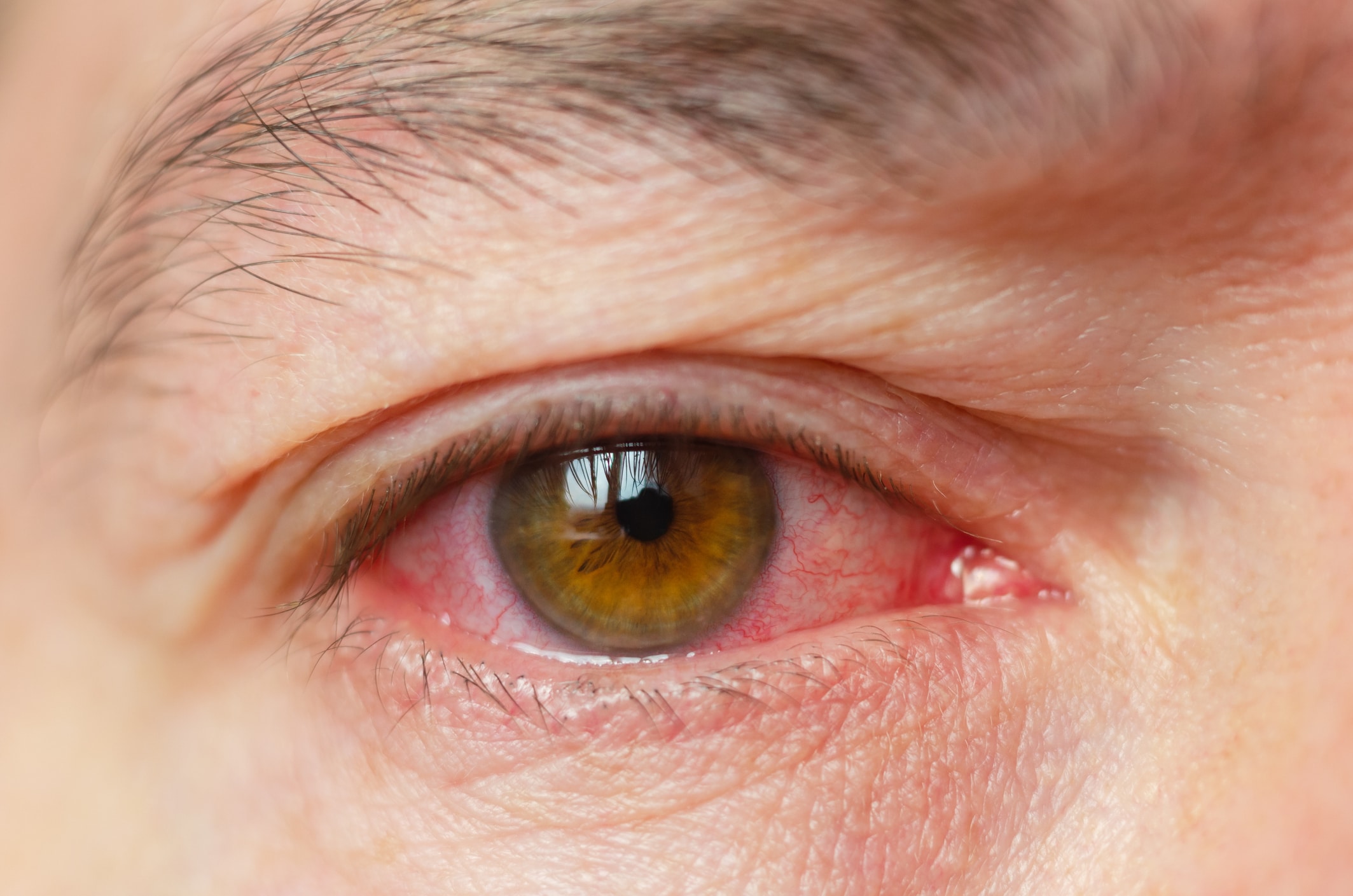Nearly everyone experiences eye irritation at some point, which could be due to allergies, dryness, or other causes. When eye discomfort lasts or recurs again and again, this indicates a chronic problem. Prolonged eye inflammation could signal a condition like uveitis.
What Is Uveitis?

Uveitis is inflammation in one of the 3 middle parts of the eye (iris, ciliary body, and choroid), collectively known as the uvea. The only visible structure is the colored part of the eye (iris). The eye is shaped like a soccer ball made of sclera, which is a sturdy collagen structure, that makes up the white part of the eye. Inside the back of the eye is a layer of retina which communicates with the optic nerve to transmit visual signals to the brain. Between the sclera and retina are rich blood vessels that supply oxygen and nutrients to the eye, known as the choroid. Toward the front part of the eye, behind the iris, is the ciliary body which produces some fluid for the eye, and also flexes to help the eye to see up close.
Symptoms Of Uveitis
Inflammation in the middle layer of the eye may cause symptoms such as:
- Eye pain
- Redness
- Light sensitivity
- Blurry vision
Causes Of Uveitis
There are different types of uveitis. Some cas, each of which may be caused by particular factors, such as bacteria, fungus, or a virus. In some cases, no known cause can be determined. In others, the problem can be traced to an eye injury or autoimmune disorder such as rheumatoid arthritis. Potential causes of uveitis include:
- Viral infection such as Herpes Simplex or Herpes Zoster (Shingles)
- Parasitic infection such as Toxoplasmosis
- Bacterial infection such as Tuberculosis
- Systemic inflammatory conditions such as Colitis or Lupus
- A recent infection anywhere in the body that resolves, but triggers an inflammation response
Smoking may increase the risk of uveitis. This is due to the inflammation that cigarette smoke provokes in the blood vessels of the eyes and the entire body. It is recommended you talk to your family doctor or other health care provider to get help to quit smoking.
Can Uveitis Be Cured?
Treatment for uveitis reduces active inflammation in the middle of the eye. However, in many cases, it is possible for uveitis to come back. A doctor may refer to inactive inflammation as being in remission. Depending on the cause of your uveitis, you may need to schedule follow-up exams, even after your condition has improved.
Treatments For Uveitis
Uveitis can lead to potentially serious complications so it needs to be treated right away. The treatment approach is determined by what the doctor finds during exam and diagnostic testing.
- Noninfectious uveitis in the front of the eye is treated with steroid eye drops to reduce swelling.
- Dilating eye drops may be prescribed to reduce pain.
- Infectious uveitis can sometimes be treated with antibiotics.
- Wearing dark glasses may help light sensitivity.
- Steroid pills or other medications may be prescribed to address systemic inflammation affecting the back of the eyes.

Will Uveitis Require Surgery?
Surgery is not generally done for uveitis itself, but surgeries may be considered for complications of uveitis like glaucoma or cataracts. More commonly for difficult or resistant cases, medication or a time-released medication implant may be injected into the eye at a clinic visit to reduce inflammation at the back of the eye.
What Happens If Uveitis Goes Untreated?
Without proper treatment, uveitis can cause permanent damage that damages vision. Uveitis is the 3rd leading cause of blindness worldwide, after cataracts and glaucoma. Some types of uveitis progress rapidly. For these reasons, it is important to schedule a thorough eye exam with an ophthalmologist if eye pain and redness do not clear up on their own within a few days.
Is Uveitis Related To Any Other Eye Condition?
Schedule a Consultation
If you are experiencing ongoing inflammation or symptoms of uveitis, please call 1-855-286-2020 or request a consultation online. We will direct you to an office near you for prompt care.




